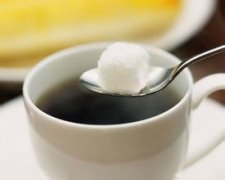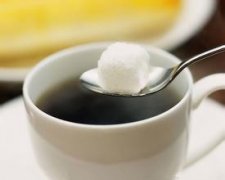Caffeine and fitness may prevent skin cancer

Recently, American scientists have found through experiments on mice that drinking a small amount of caffeine and regular exercise can prevent the skin from developing skin cancer caused by ultraviolet rays.
The study was conducted in Susan, New Jersey. Lyman? Conducted by the Kullmann Cancer Research Laboratory (Susan Lehman Cullman Laboratory), the results are published in the online edition of the National Journal of Science (Proceedings of the National Academy of Sciences).
Today, skin cancer caused by sun exposure is the most common type of cancer in the United States, with more than one million cases a year, according to the National Cancer Institute.
In the study, by Aaron? Dr Connie's team divided a group of shaved mice into four groups. The first group drank caffeinated water (equivalent to one or two cups of coffee a day). The second group was put on wheels to run freely. The third group drank caffeinated water and ran freely. The fourth group was neither allowed to drink caffeinated water nor run freely on wheels. Then all the mice were exposed to ultraviolet light.
The researchers found that all four groups of mice had DNA damage in their skin cells, causing varying degrees of "apoptosis" or "programmed natural death", while mice that drank caffeine and exercised had the most apoptosis. The so-called "apoptosis" is the natural death of cells after a series of biochemical changes, and the residual physical energy is excreted safely. With such "suicidal behavior", cells are not prone to malignant carcinogenesis. "if apoptosis occurs in cells damaged by sunlight, it is tantamount to cancer failure," Dr. Connie said. There were great differences in the formation of apoptosis among the four groups of mice.
Connie and his colleagues observed the degree of apoptosis in four groups of mice by observing the physical changes of skin cells and calculating the protease caspase-3 involved in apoptosis and p53, which inhibits tumor. They found that compared with the fourth group of mice:
The first group of mice had 90% more apoptosis.
The second group of mice had 120% more apoptosis.
The third group of mice had nearly 400% more apoptosis.
Although they found that caffeine and exercise work together to produce "some kind of biochemical effect", how this effect works remains to be further studied and may eventually need to be confirmed by experiments on people themselves.
"We also need to delve deeper into the link between caffeine and exercise to produce cellular and molecular effects," Connie said. After figuring out how these cells change, we may be able to try something on humans. Today, ultraviolet rays are more rampant, the impact of skin cancer is increasing, and bonuses have been set up to find novel ways to prevent skin cancer. "
Important Notice :
前街咖啡 FrontStreet Coffee has moved to new addredd:
FrontStreet Coffee Address: 315,Donghua East Road,GuangZhou
Tel:020 38364473
- Prev

Coffee general knowledge about the obesity index of all kinds of coffee
Many people always worry that they will get fat when they drink coffee, but the delicious coffee is really hard to give up, so they always hope to find coffee that is both delicious and not easy to cause obesity. Here are various indexes of several common coffees for reference. Italian coffee: Italian coffee is usually brewed at home using a mocha pot invented in Italy. This kind of coffee
- Next

Coffee common sense should not drink more than three cups of coffee a day
Coffee, drink no more than three cups of coffee a day now, coffee has become a fashionable drink, more and more cafes are open, young people like to go to cafes to party, coffee has become a must-have drink for many families. However, health experts advise those who like to drink coffee and those who are very sociable not to drink too much coffee and to drink two to three cups a day. In principle, no.
Related
- Beginners will see the "Coffee pull flower" guide!
- What is the difference between ice blog purified milk and ordinary milk coffee?
- Why is the Philippines the largest producer of crops in Liberia?
- For coffee extraction, should the fine powder be retained?
- How does extracted espresso fill pressed powder? How much strength does it take to press the powder?
- How to make jasmine cold extract coffee? Is the jasmine + latte good?
- Will this little toy really make the coffee taste better? How does Lily Drip affect coffee extraction?
- Will the action of slapping the filter cup also affect coffee extraction?
- What's the difference between powder-to-water ratio and powder-to-liquid ratio?
- What is the Ethiopian local species? What does it have to do with Heirloom native species?

